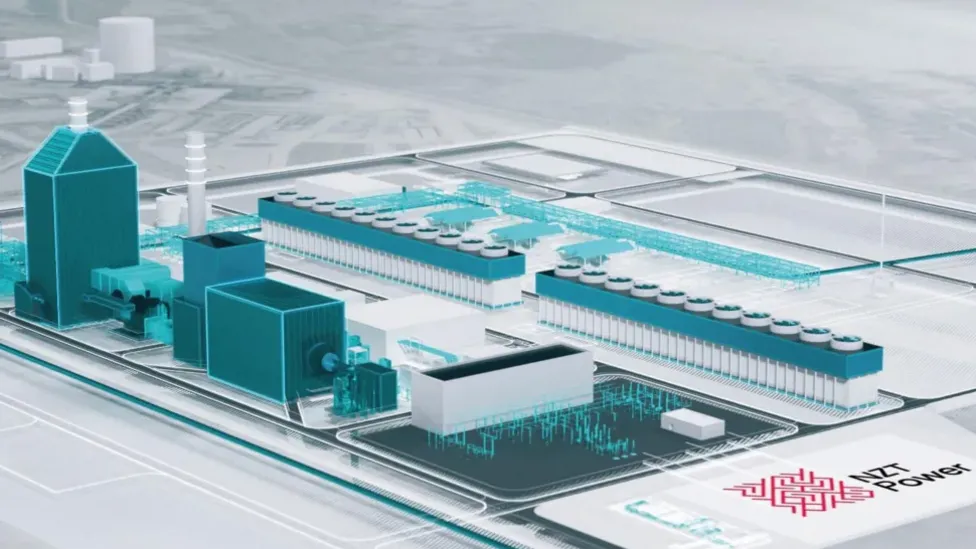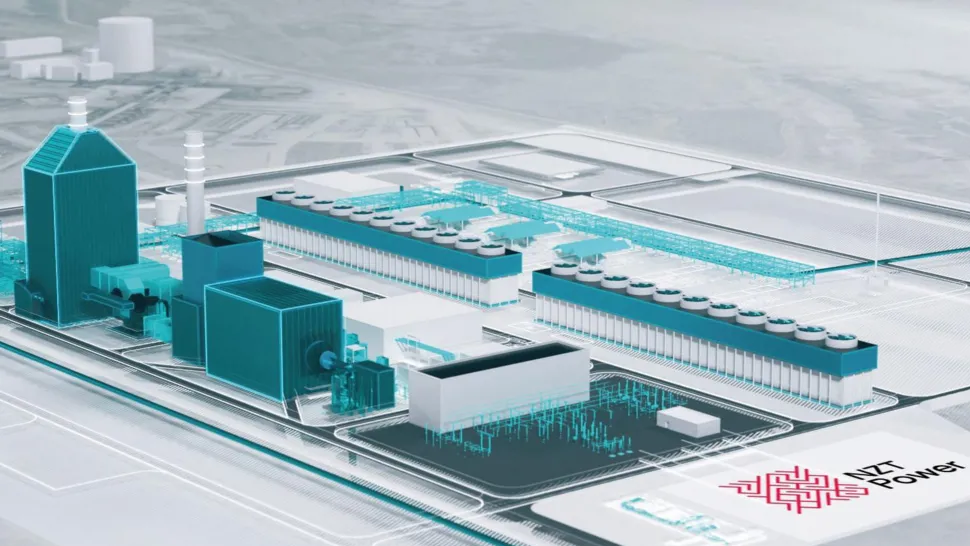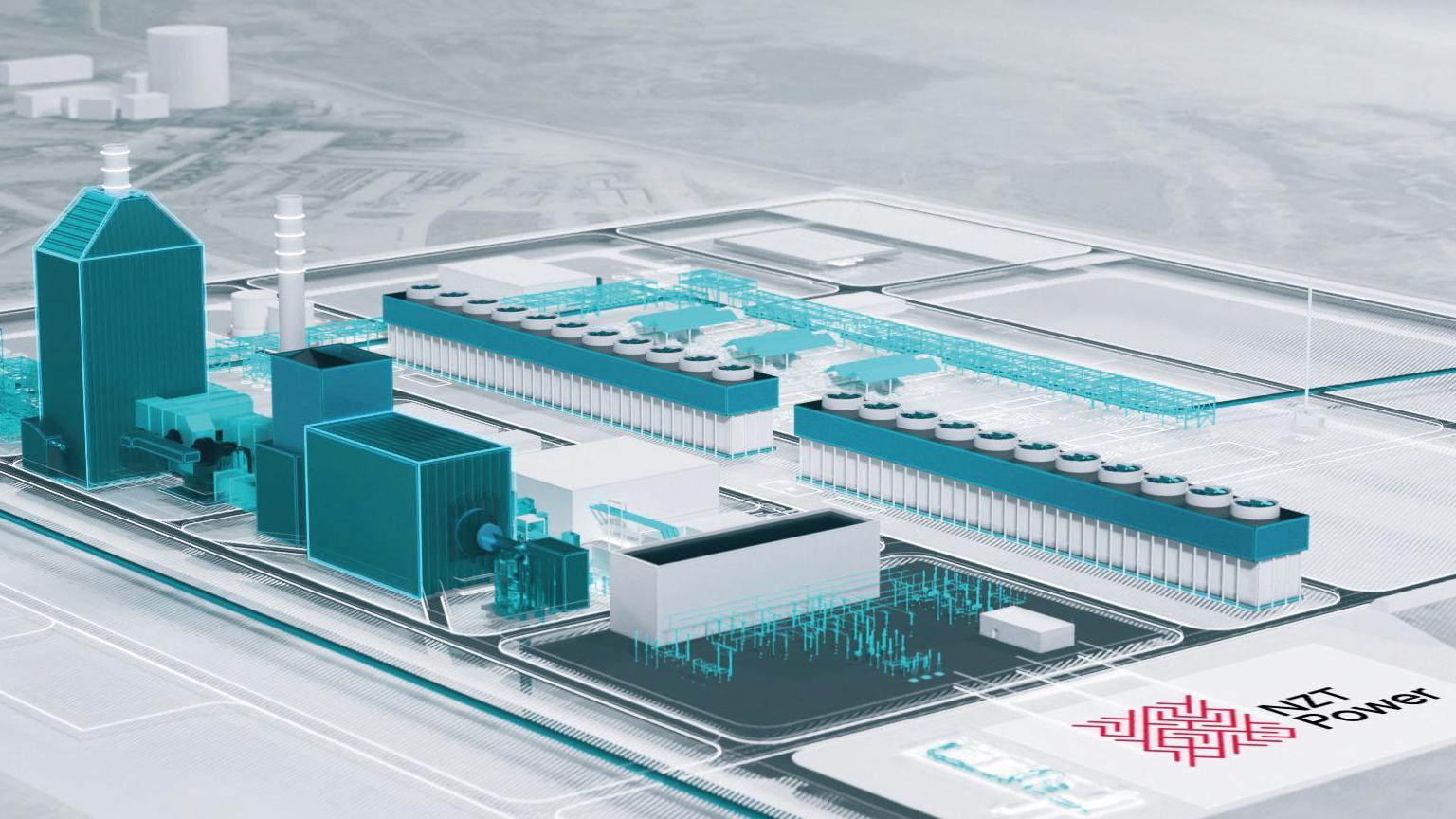Planned power station emissions 'underestimated'

NZT Power received approval from the government in February
- Published
The lifetime greenhouse gas emissions of two planned "low-carbon" power stations could be two to three times larger than estimated, a new report has said.
Carbon Tracker, a think tank, analysed the potential environmental impact of Net Zero Teesside Power (NZT Power), which has recently been approved by the government, and H2Teesside, for which BP is currently seeking approval.
"We need to be accurate in estimating them [emissions] and it's not what's happening," the group said.
The developers of NZT Power - BP and Equinor - declined to comment. BP has separately been approached for comment regarding H2Teesside.
In February the government granted NZT Power a development order (DCO) which is required for nationally significant infrastructure projects.
BP and Equinor claim at least 90% of the gas power station's emissions would be captured and funnelled beneath the North Sea.
The power station could generate up to 860 megawatts of low-carbon electricity, enough to power more than one million homes, they said.
'Historical data'
But Lorenzo Sani, an analyst at non-profit Carbon Tracker, which is funded by various groups such as Bloomberg Philanthropies and the European Climate Foundation, said it was very likely the UK would need to import liquified natural gas (LNG) to fuel the plant.
Levels of gas that could be extracted from under the North Sea were dropping, affecting local supplies, he said.
Importing LNG resulted in indirect carbon emissions which the developers were either "ignoring completely or underestimating", Mr Sani said.
"The process of compressing the gas, putting it in a ship in a tanker, a lot of these processes produce a lot of emissions," he said.
He suggested running on imported LNG would increase NZT Power's lifetime emissions by 1.7 to 2.6 times.
BP’s proposed H2Teesside "blue hydrogen" plant would convert natural gas into hydrogen and aims to capture and store much of the carbon emissions produced.
Mr Sani said H2Teesside faced the same issue as NZT Power in that it was likely to depend on imported LNG.
"What we're trying to show is that, if they don't deal with these other emissions, the climate impact [of the plants] won't be positive," he said.
The government's Department for Energy Security and Net Zero has been approached for comment.
Follow BBC Tees on X (formerly Twitter), external, Facebook, external and Instagram, external. Send your story ideas to northeastandcumbria@bbc.co.uk.
Related topics
More stories from BBC North East and Cumbria
- Published14 May 2024

- Published19 February 2024
